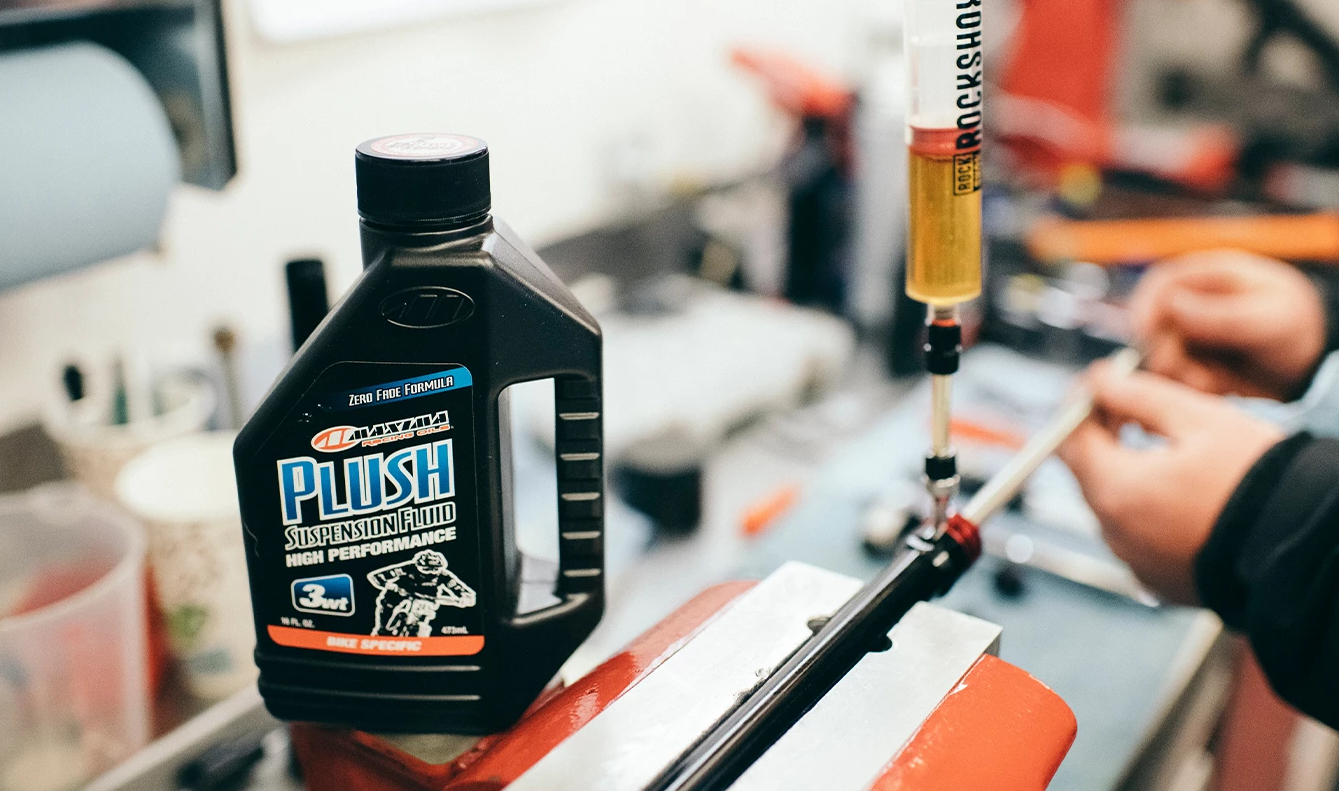Fork oil is a special kind of oil used in the forks of motorcycles and bicycles. The forks are the part of the bike that connects the front wheel to the frame and helps with absorbing shocks from the road, making the ride smoother. Over time, the oil in the forks needs to be changed to keep everything working properly.
But what happens when you don’t have fork oil on hand or need a quick substitute? There are alternatives that can work in place of fork oil, each with its own benefits and downsides. In this blog post, we will explore ten substitutes for fork oil that you can consider if you find yourself in a situation where you need a replacement.
These substitutes are not always perfect replacements, but they can help you get by when you need them. It’s important to understand that using these substitutes might not provide the exact performance as fork oil.
10 Best Substitutes For Fork Oil
These substitutes might be thicker, thinner, or have different properties that could affect how your bike handles. However, in many cases, they can work well enough to get you back on the road until you can get the right oil. Let’s take a look at these options.
1. Motor Oil

Motor oil is one of the most common substitutes for fork oil. It is widely available and serves the purpose of lubricating and protecting engine parts from friction and wear. When used in forks, motor oil can provide decent lubrication and damping properties. However, motor oil is generally thicker than fork oil, so it might not offer the same level of smoothness and performance.
The viscosity of motor oil can vary, so choosing a lighter grade, like 5W-20 or 10W-30, could help in achieving closer performance to fork oil. The downside is that motor oil can lead to stiffer suspension, which might make your ride feel a bit harsher, especially on bumpy roads.
2. Transmission Fluid

Transmission fluid is another substitute that can be used in place of fork oil. It is designed to work in the transmission of vehicles, helping to lubricate gears and keep them cool. Transmission fluid is thinner than motor oil, and some types are closer in viscosity to fork oil, making it a better option in some cases.
When used in forks, it can provide smooth operation and decent damping. However, because transmission fluid is designed for a different type of mechanical system, it might not perform as well as fork oil over time. It could break down quicker and may not protect the internal components of the fork as effectively.
3. Hydraulic Oil

Hydraulic oil is used in many systems that rely on hydraulic power, such as machinery, brakes, and steering systems. It is designed to transfer power and can handle high pressure and temperatures. Hydraulic oil can be used as a substitute for fork oil because it shares some similar properties, such as its ability to lubricate and maintain smooth operation.
However, hydraulic oil is typically thicker than fork oil, which might affect the performance of your suspension. It might make the forks feel stiffer, which could be uncomfortable on rough terrain. Additionally, the additives in hydraulic oil are different from those in fork oil, so it might not offer the same level of protection to the fork components.
4. ATF (Automatic Transmission Fluid)

ATF, or Automatic Transmission Fluid, is specifically designed for use in automatic transmissions of cars. It is formulated to provide smooth shifting, cooling, and protection of transmission parts. ATF is a popular substitute for fork oil because it has a viscosity that is often close to that of fork oil.
It can provide decent damping and smooth operation when used in forks. However, like other substitutes, ATF is not designed for this specific purpose, so it may not offer the same long-term protection as fork oil. It could also cause the suspension to feel slightly different, depending on the type of ATF used.
5. Power Steering Fluid

Power steering fluid is used in the power steering systems of vehicles, helping to make steering easier and more responsive. This fluid is designed to work under high pressure and to provide smooth operation, which makes it a potential substitute for fork oil. Power steering fluid is generally thinner than motor oil and can offer similar damping properties to fork oil.
However, it might not be as effective in protecting the internal components of the fork over time. Power steering fluid is also not designed to handle the specific demands of a suspension system, so while it can work in a pinch, it is not an ideal long-term solution.
Read also 13 Best Substitutes For Cutting Oil
6. Gear Oil

Gear oil is another option that can be used as a substitute for fork oil. It is designed to lubricate gears in transmissions, differentials, and other parts of a vehicle that experience high pressure and friction. Gear oil is typically much thicker than fork oil, which can result in a stiffer and less responsive suspension.
This might make your ride feel uncomfortable, especially on uneven surfaces. However, gear oil is very good at providing lubrication and protecting metal components from wear. If you choose to use gear oil as a substitute, it is recommended to go for a lower viscosity option to avoid making the suspension too stiff.
7. Shock Oil

Shock oil is specifically designed for use in the shock absorbers of vehicles, which are similar in function to the forks on a motorcycle or bicycle. Shock oil has properties that make it very similar to fork oil, including the right viscosity and additives that help protect the internal components of the suspension system. Because of these similarities, shock oil is one of the better substitutes for fork oil.
It can provide smooth operation and good damping performance, making it a good choice if you don’t have fork oil available. However, shock oil might still not match the exact performance characteristics of fork oil, so it’s important to be aware of how your bike feels when using it.
8. Suspension Fluid

Suspension fluid is designed for use in various parts of a vehicle’s suspension system, including shocks and struts. Like shock oil, suspension fluid has properties that make it suitable as a substitute for fork oil. It is formulated to provide smooth operation and protect against wear and tear, making it a good alternative in many cases.
Suspension fluid comes in different viscosities, so you can choose one that is close to the viscosity of your usual fork oil. While suspension fluid is a good substitute, it might still not offer the same level of performance as fork oil, especially in terms of how it handles over time.
9. Chain Oil

Chain oil, which is typically used to lubricate the chains on motorcycles and bicycles, can also be used as a temporary substitute for fork oil. Chain oil is designed to provide lubrication and protect against rust and wear, which are important properties for any oil used in forks.
However, chain oil is generally thicker than fork oil and might not provide the same level of smoothness and damping. Using chain oil in your forks could result in a stiffer suspension, which might not be ideal for long rides or rough terrain. It is best to use chain oil only in emergencies when no other options are available.
10. Vegetable Oil

Vegetable oil might sound like an unusual choice, but it can be used as a last-resort substitutes for fork oil. Vegetable oil is readily available and can provide basic lubrication in an emergency. However, vegetable oil is not designed for mechanical use and lacks the properties needed to protect the internal components of a fork over time.
It is also much thicker than fork oil and can break down quickly when exposed to heat and pressure. Using vegetable oil might result in poor performance and could potentially damage the forks if used for an extended period. It is highly recommended to only use vegetable oil as a temporary solution until you can get proper fork oil.
Conclusion
Whenever possible, it’s always best to use the correct fork oil for your motorcycle or bicycle. But if you find yourself in a situation where you need a substitute, these options can keep you on the road until you can get the right oil. Just be sure to monitor how your bike feels and performs when using a substitute, and make plans to replace it with the proper oil as soon as you can. Your suspension system is an important part of your bike’s performance and safety, so taking care of it with the right oil is always the best approach.






